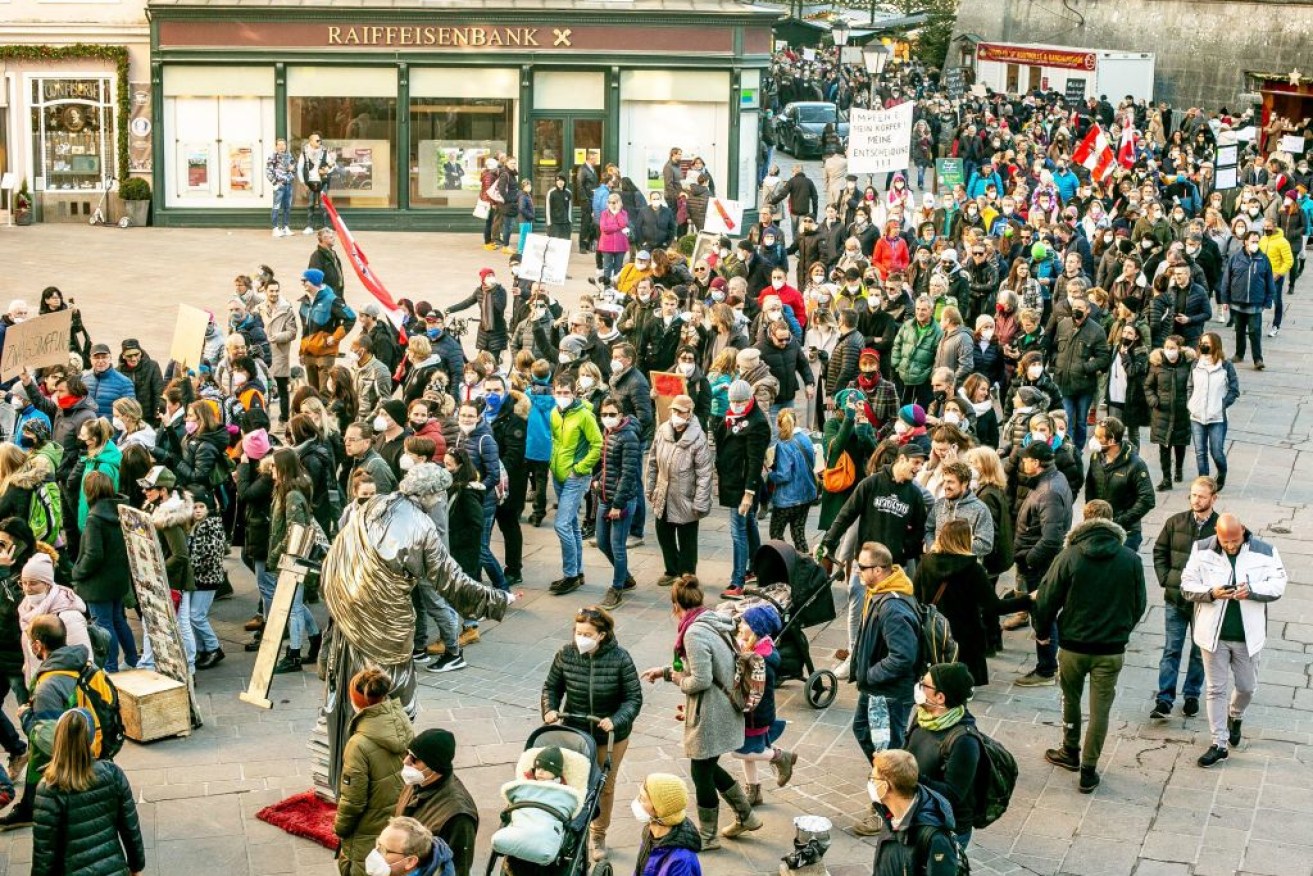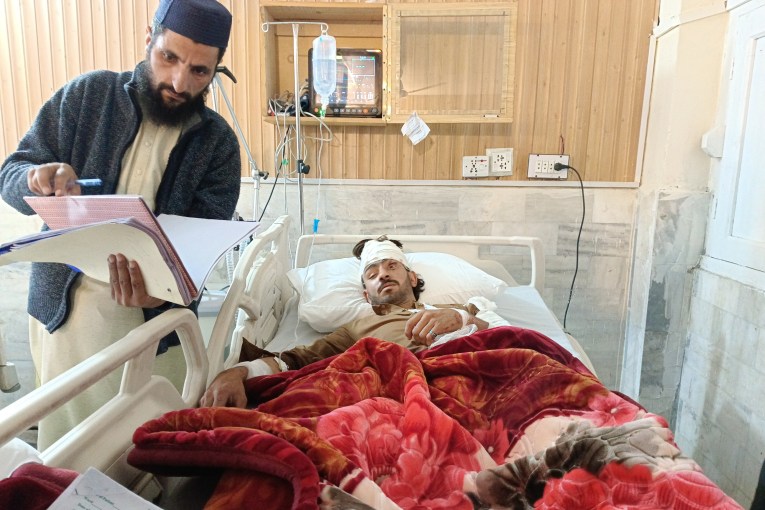Last day of freedom before Austria locks down

Protesters took to the streets of Salzburg on Sunday before a nationwide lockdown to protect Austrians from a coronavirus surge. Photo: Getty
Under a clear blue sky, Austrians enjoyed a last day out in coffeehouses and at Christmas markets before the government imposes a nationwide lockdown to combat a surge of coronavirus infections.
The measures, which take effect early Monday (local time), are expected to last for up to 20 days but will be reevaluated after 10.
They require people to stay home apart from basic reasons like getting groceries, going to the doctor and exercising.
Restaurants and most shops will close, and larger events will be canceled.
Schools and day care centres will remain open, but parents are encouraged to keep their children at home.
Austria hopes to lift the measures on December 13 but may keep a further lockdown on the unvaccinated.
Chancellor Alexander Schallenberg also announced on Friday that Austria will introduce a vaccine mandate from February. 1. The details of how the mandate will work aren’t yet clear.
With the lockdown looming, Christmas markets across central Vienna were packed with people eager to buy gifts and enjoy one last round of warm drinks and food.
At the Freyung Christmas market in Vienna, Alexandra Ljesevic and her sister Anna sipped mulled wine and punch amid wooden stands and under sparkling holiday lights.
“It’s the last chance to feel the Christmas time and vibes,” Alexandra Ljesevic said.
The sisters said they feel luckier than most, since their jobs won’t be affected by the lockdown. But they’re not optimistic that things will reopen on December 13.
“It would be weird if in 20 days they said, ‘OK, for vaccinated people, you’re free to go,’ if the hospitals are still overwhelmed,” said Anna Ljesevic.
“That’s the only reason why we even need the lockdown.”
Across the market, Maria Fernanda Monasterio enjoyed a hot chocolate and lamented that the market was shutting down.
“This is for me the most beautiful time of the year here in Vienna,” she said. “I was really looking forward to it.”
In an interview on Sunday in the newspaper Kurier, Mr Schallenberg said it was “sad” that the Austrian government had to resort to a mandate to ensure that enough people were vaccinated.
Just under 66 per cent of Austria’s 8.9 million people are fully vaccinated, one of the lowest rates in Western Europe.
On Saturday, Austria reported 15,297 infections, after a week in which daily cases topped 10,000.
Hospitals, especially those in the hardest hit regions of Salzburg and Upper Austria, are overwhelmed as the number of coronavirus patients rises in intensive care units.
“That people’s freedoms need to be restricted again is, believe me, also difficult for me to bear,” Mr Schallenberg said.
The measures, especially the vaccine mandate, have been met with fierce opposition among some.
A Saturday, a protest in the capital city of Vienna drew 40,000 people, according to police, including members of far-right parties and groups.








